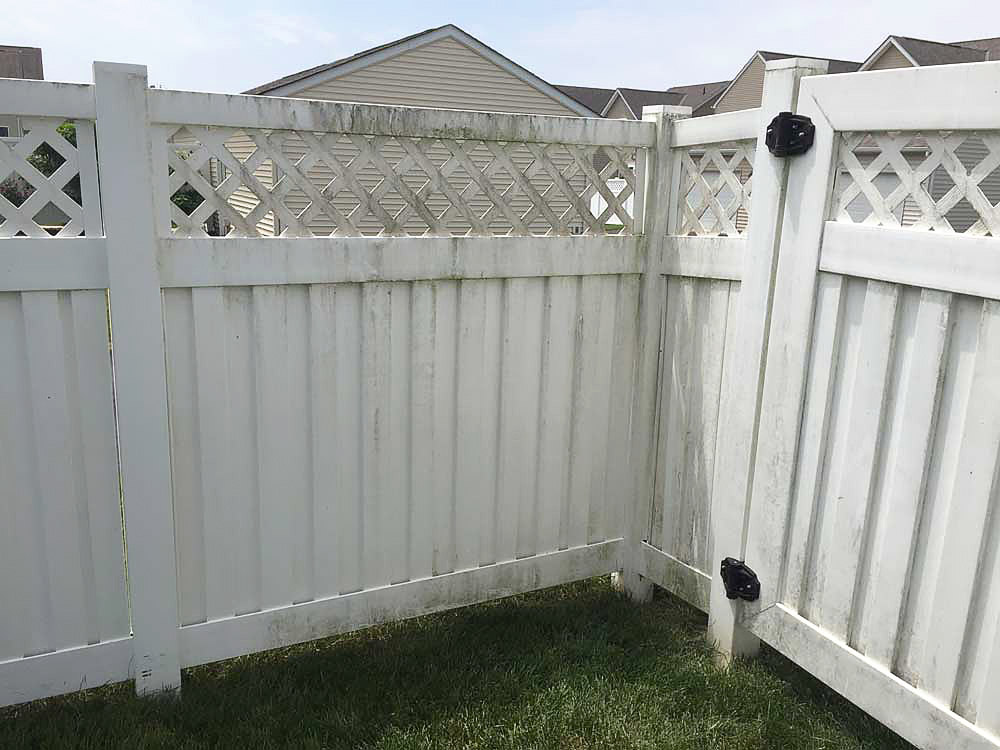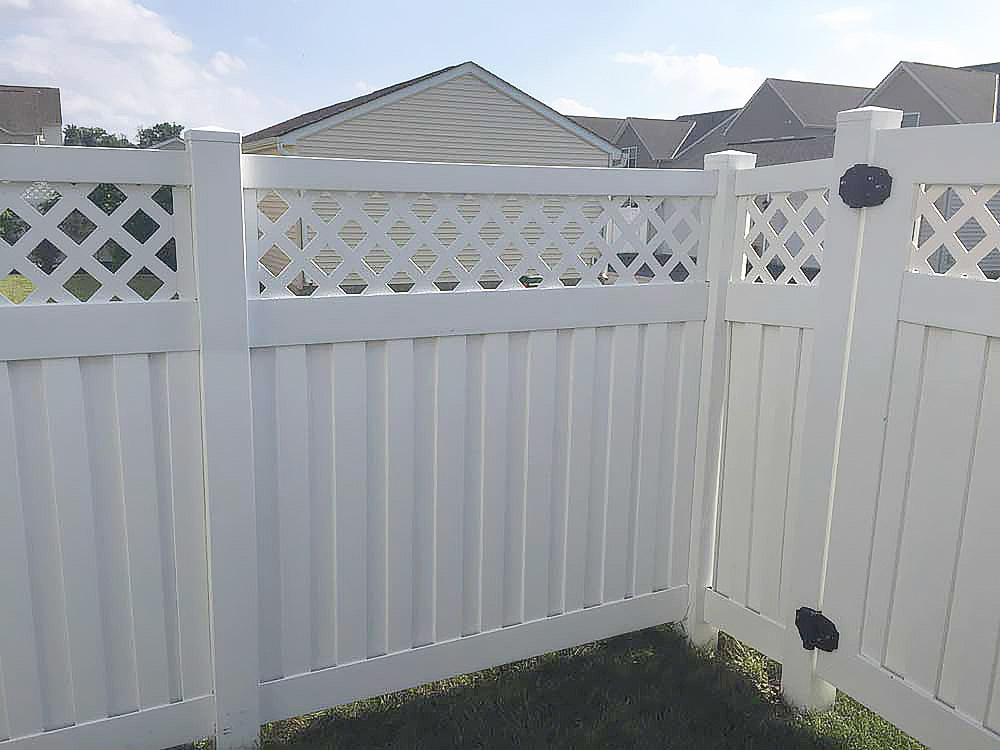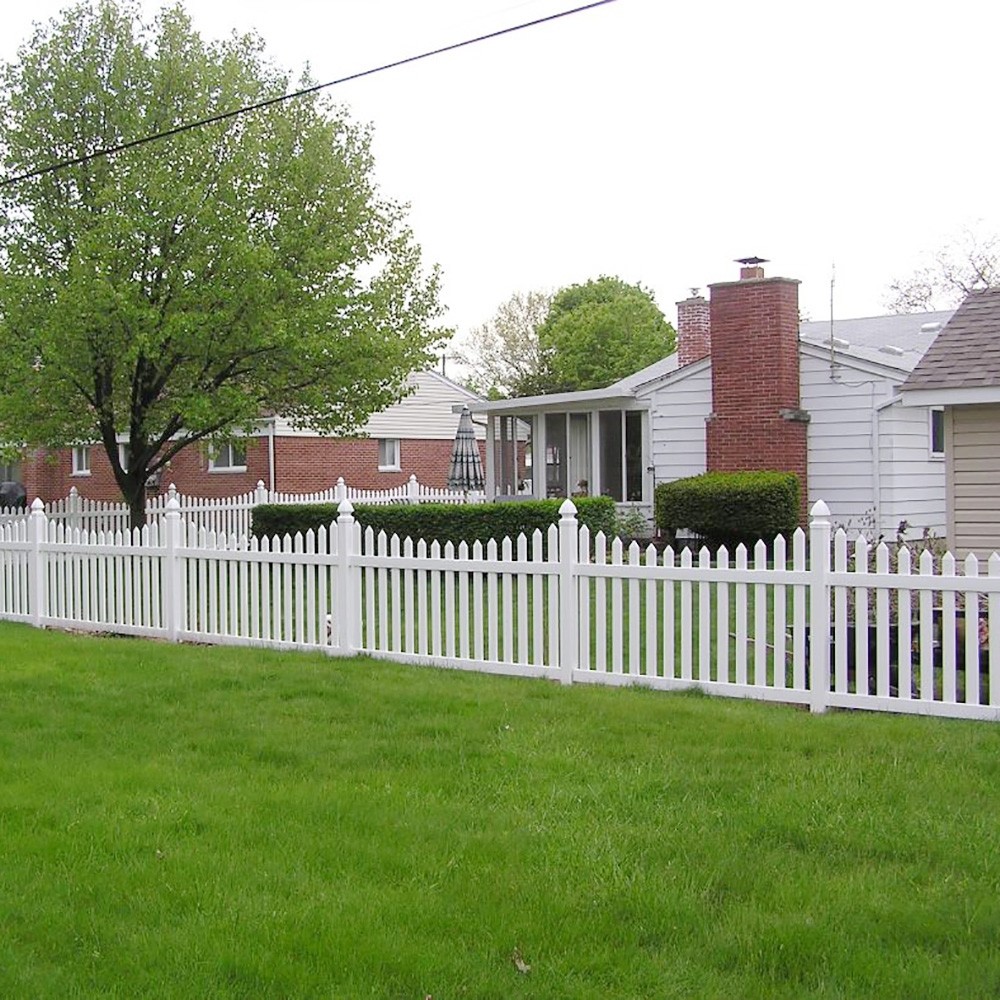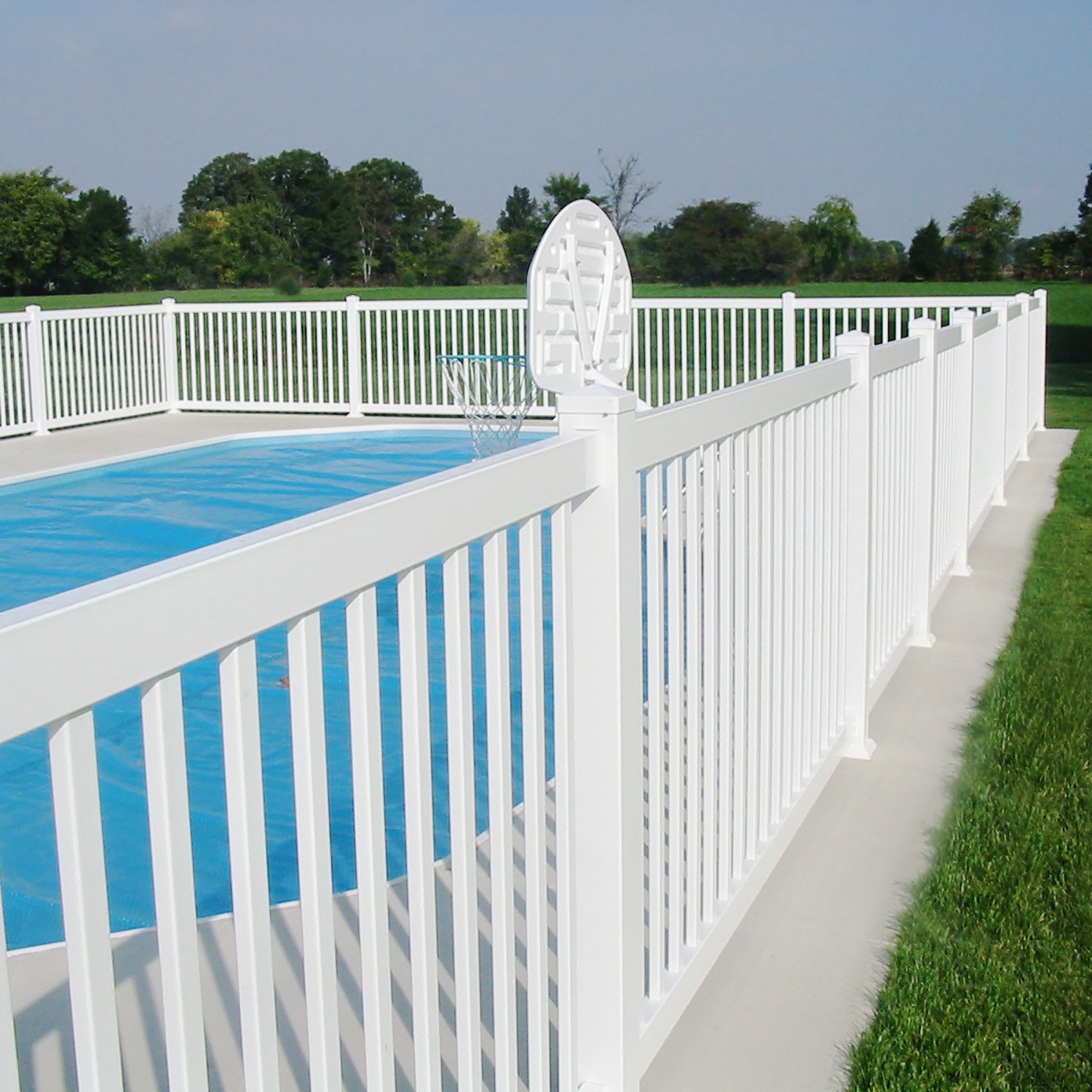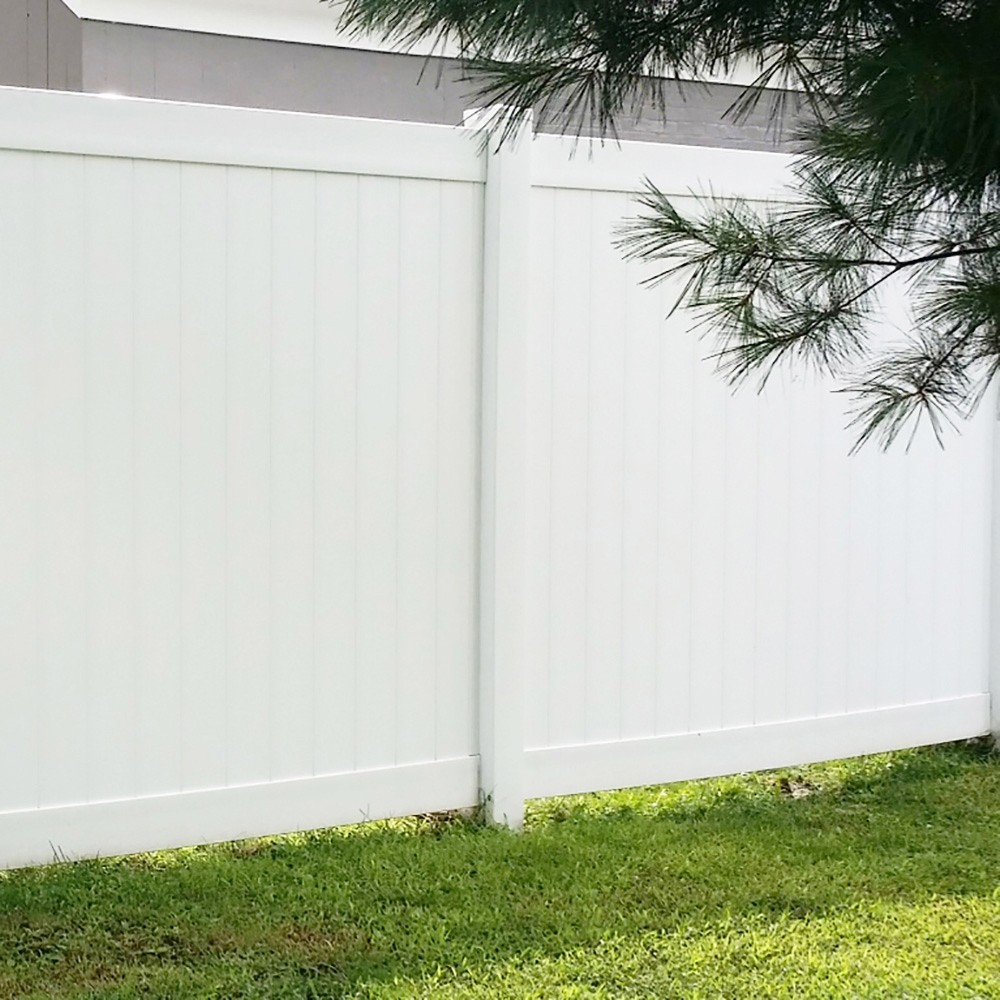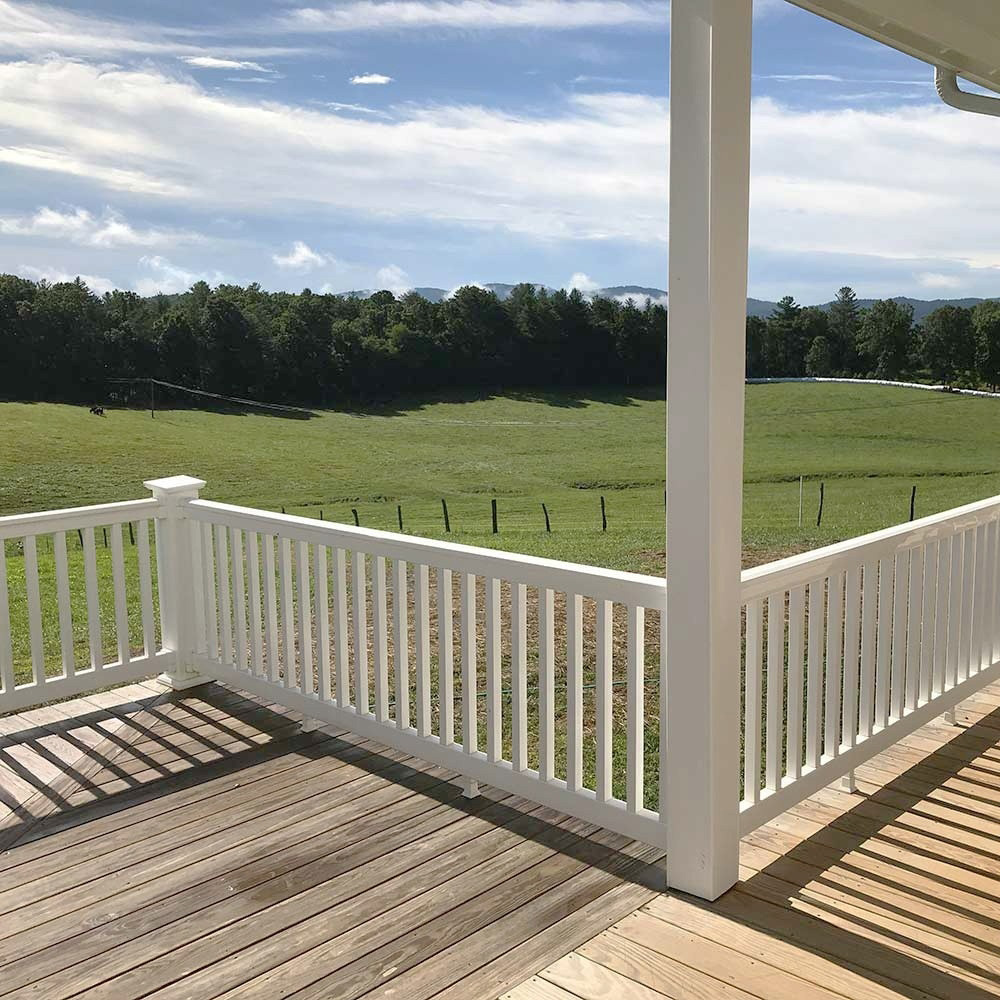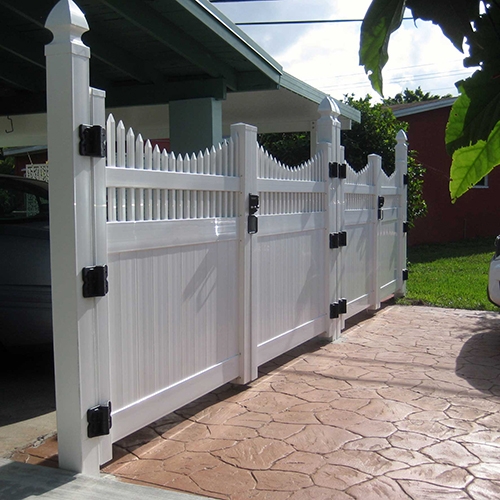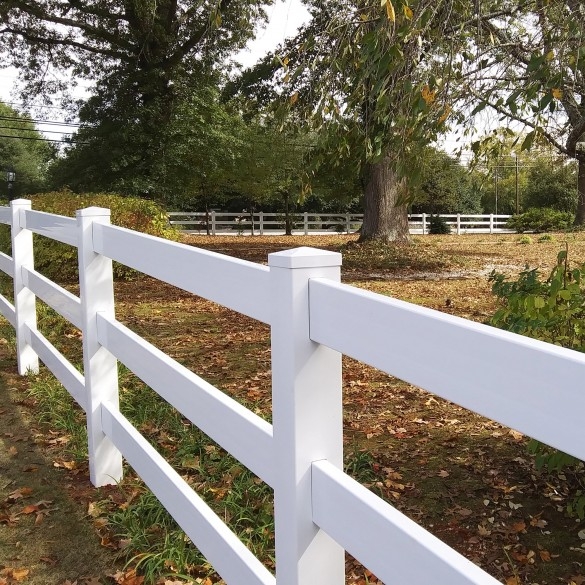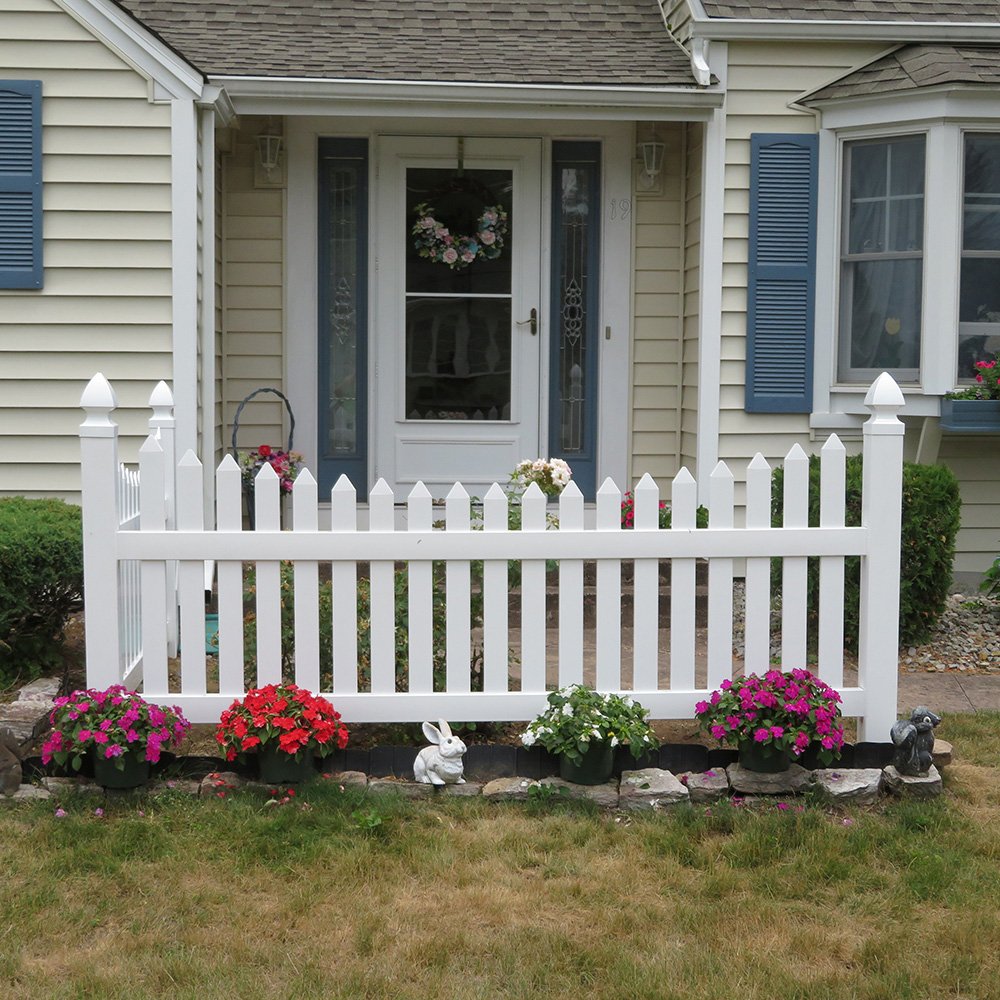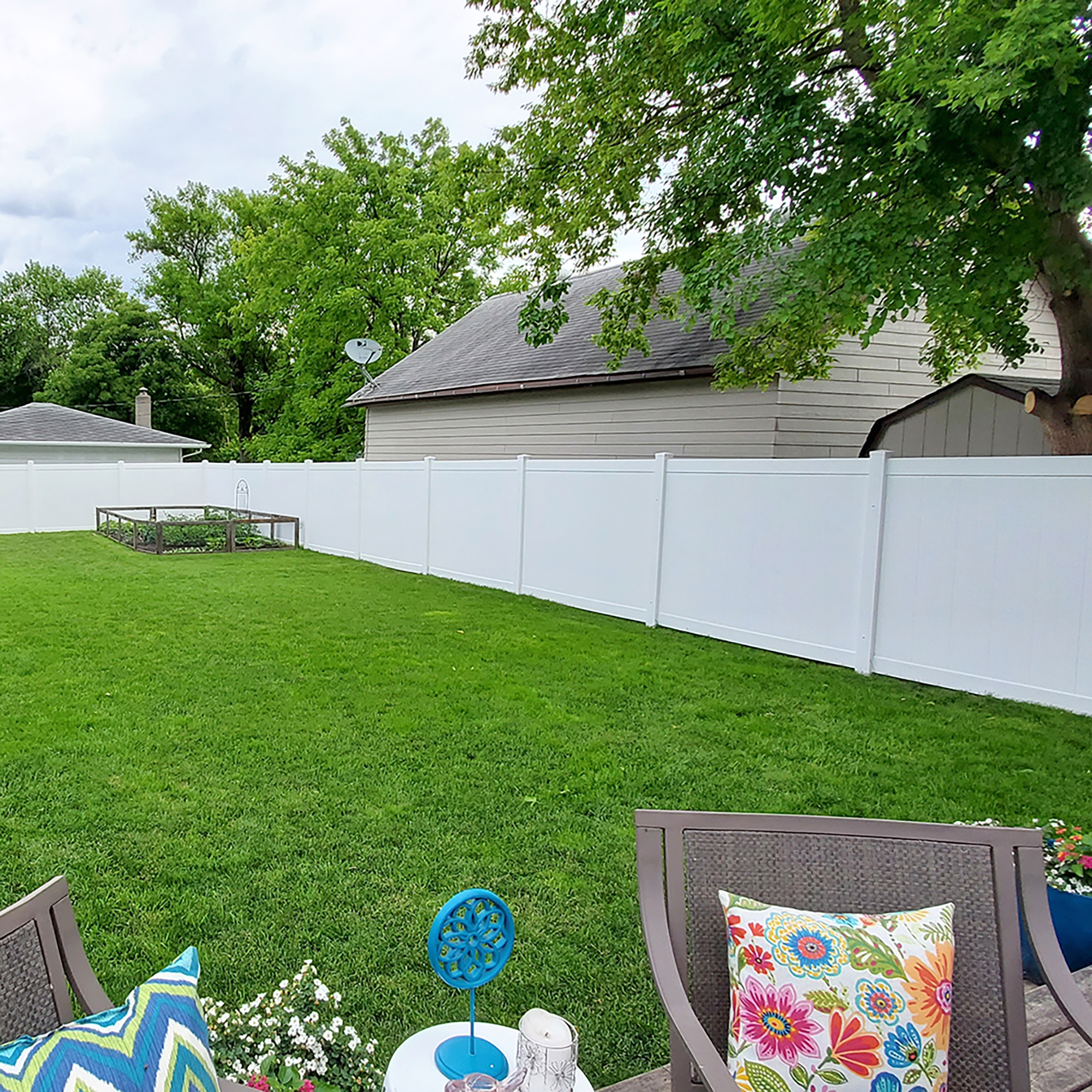How To Clean Vinyl Fences
Cleaning a vinyl fence is about the only maintenance needed to be done routinely. It's a fairly straightforward process and should be done before any buildup of dirt or mildew gets too bad. It's recommended to clean the vinyl fence about twice a year, depending on how quickly it gets dirty. If the fence is exposed to direct sunlight most of the time, the fence probably won't need to be cleaned as often as one that's in the shade, which is prone to building up mold quicker. There are a few ways to clean a vinyl fence and make it look brand new again. The ways depend on how bad the buildup is, so you may need to experiment with a couple of different ways and see which one works best for your fence.
How to Clean Dirt Off of a Vinyl Fence
Cleaning a light buildup of dirt or debris on your vinyl fence is pretty straightforward. Most people have all the tools needed to clean it on hand. Get a sponge, rag, or soft brush. Then, grab a bucket with hot water. Add mild dish soap or white vinegar to the water. A good ratio for the vinegar is 2 cups (473 ml) per 1 Gallon (3.79 l) of water. If using dish soap, just a few squirts is good. Vinegar is a great non-toxic cleaner that dissolves tough stains. Its best to get the fence wet prior to scrubbing. Take a hose and rinse the fence down. This will soften and break up some of the dirt. Afterward, start scrubbing the fence until it is clean. Make sure to rinse the fence off after cleaning it, that way there isn't any residue left. If this method is not getting the dirt or stains off, you may need to try to next option.
How to Remove Mildew Or Algae From a Vinyl Fence
This method is for tougher stains or buildups of green mildew. Using a pressure washer will save some elbow grease. If your pressure washer has a feature for a soap mixture, go ahead and mix some mild dish soap with water and spray down the fence. Be sure not to get too close to the fence, as it may damage the vinyl if the pressure is high enough. A garden hose may work also if you don't have a pressure washer. Using bleach should be a last resort as it will drain into the environment but if you do choose to use it, using a ratio of 1/4 cup (60ml) of bleach to 2 gallons (9 l) of water should be plenty. Also, make sure to only use bleach on white vinyl. It will discolor the fence if you use it on any other color.
How to Keep Your Vinyl Fence Safe While Still Taking Care of Your Lawn
Maintaining a healthy lawn while preserving the condition of your vinyl fence requires a few thoughtful adjustments to your lawn care routine. Generally speaking lawn care shouldn't need more than minor cleaning methods like soap and water to be removed as it is usually light amounts of dirt or grass clippings that can easily be removed by a garden hose. However, in order to minimize or outright eliminate the need to clean your fence in the first place after taking care of your lawn, there are some helpful tips to protect your fence from common lawn care hazards:
-
Create a Protective Barrier: Add a mulch or gravel border at the base of the fence to reduce grass growth near the fence and eliminate the need to trim close to it. You can also install a concrete mow strip for a more permanent solution.
-
Use Lawn Edging Materials: Install plastic or aluminum edging along the base of the fence. This adds a visible and physical barrier between the fence and lawn equipment.
-
Be Mindful with Lawn Equipment: Avoid hitting the fence with lawn mowers or string trimmers. Keep a safe distance and carefully trim grass manually when needed.
-
Adjust Trimmer Settings: Set the trimmer head to a higher level to avoid cutting too low, which can increase the risk of damaging the fence or scalping the lawn.
-
Clean and Inspect Regularly: Clean your vinyl fence regularly to remove grass clippings, dirt, and debris. Periodically check for signs of damage or wear and make small repairs promptly to extend the fence’s lifespan.
Need to Replace Your Fence?
If your vinyl fence is showing signs of serious wear like warping, cracking, discoloration, missing parts, or extreme staining that even the best methods can't clean, it might be time to consider a replacement. While routine maintenance can extend the life of your fence, sometimes a full replacement is the best way to restore function and curb appeal. Upgrading your fence is also a great opportunity to explore new styles or configurations that better suit your needs. Whether you're looking for more privacy, a refreshed look, or increased durability, modern vinyl fencing options make it easy to find the right fit for your space.
Frequently Asked Questions About Cleaning Vinyl Fencing
How Often Should I Clean My Vinyl Fence?
It's recommended to clean your vinyl fence at least twice a year. Regular cleaning prevents the buildup of dirt, mold, and mildew, especially in shaded areas where moisture accumulates. Fences exposed to direct sunlight may require less frequent cleaning due to faster drying. Consistent maintenance helps preserve the fence's appearance and longevity.
What Is the Best Solution for Cleaning Light Dirt Off My Vinyl Fence?
For light dirt, a mixture of warm water and mild dish soap or white vinegar works effectively. Combine 2 cups of vinegar with 1 gallon of water, or add a few squirts of dish soap to a bucket of warm water. Use a sponge, rag, or soft brush to scrub the fence gently, then rinse thoroughly with a garden hose to remove any residue. This method is safe and effective for routine cleaning.
How Can I Remove Heavy Mildew or Algae from My Vinyl Fence?
To tackle heavy mildew or algae, using a pressure washer can be effective. If your pressure washer has a soap dispenser, mix mild dish soap with water and apply it to the fence. Maintain a safe distance to avoid damaging the vinyl. Alternatively, a solution like Wet & Forget can be applied without scrubbing and is environmentally friendly.
Can I Use Bleach to Clean My Vinyl Fence?
Bleach should be used cautiously and only as a last resort for stubborn stains. If necessary, mix 1/4 cup of bleach with 2 gallons of water. Apply this solution carefully, ensuring it doesn't come into contact with surrounding vegetation. Only use bleach on white vinyl fences, as it can discolor colored vinyl.
Can I Prevent Mold and Mildew from Forming on My Vinyl Fence?
Yes, you can minimize mold and mildew growth by regularly cleaning your vinyl fence and keeping it dry when possible. Trim nearby plants and shrubs to increase air circulation and reduce moisture buildup. Installing your fence in a way that allows proper drainage around the base can also help. Preventive care makes future cleanings easier and helps maintain the fence’s appearance.
Contact Us
Keeping your vinyl fence clean is key to preserving its beauty and extending its lifespan. Whether you're dealing with everyday dirt, mildew, or more stubborn stains, using the right cleaning solutions and techniques can make a big difference. From gentle soap and water to pressure washers and EPA-registered products, there are safe and effective ways to maintain your fence. Regular upkeep not only enhances curb appeal but also prevents costly damage over time. If you have questions about fence maintenance or need product recommendations, our team is here to help. Reach out today for expert advice or to learn more about our vinyl fencing solutions.
Contact Us
